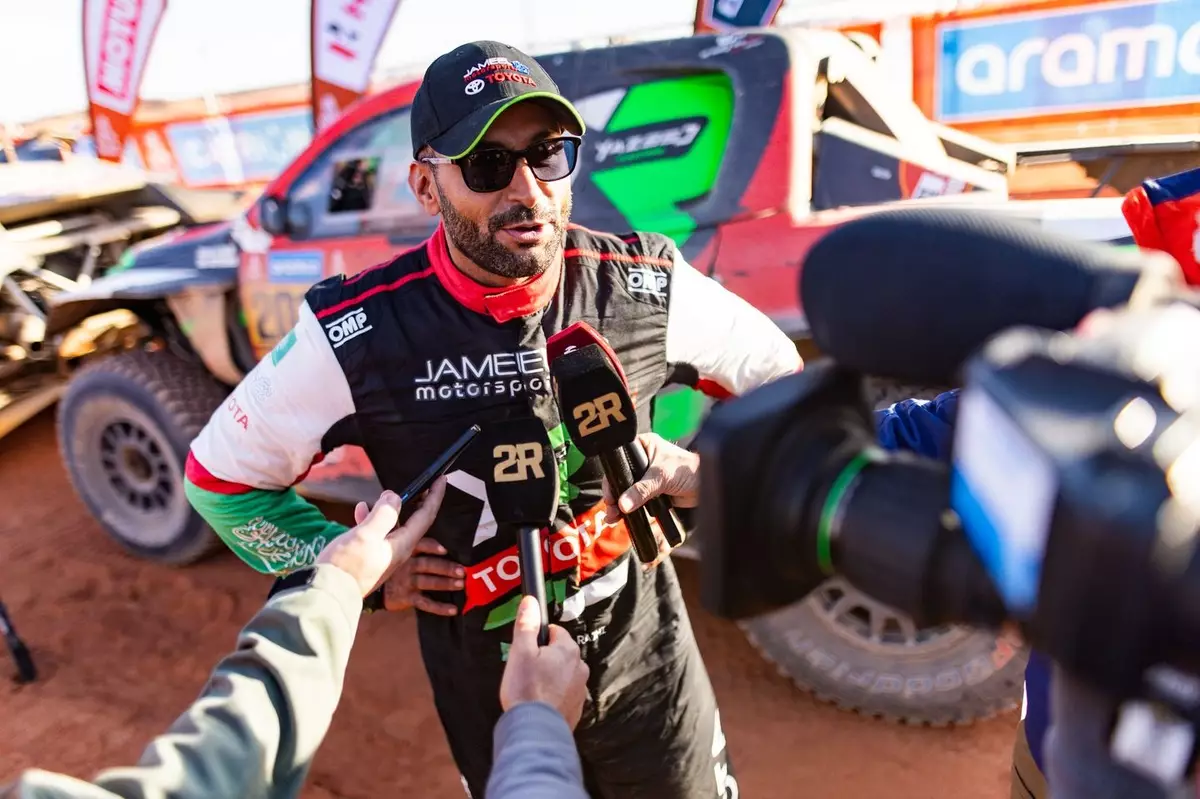The Dakar Rally holds a prestigious place in the history of motorsport, having traversed various countries since its inception in 1979. This year’s event, however, was fiercely competitive, and it witnessed a significant milestone as Saudi driver Yazeed Al-Rajhi achieved what no other driver had done before: lifting the Touareg trophy on home soil. Amidst a backdrop of unexpected departures from notable competitors, Al-Rajhi’s victory stands as a beacon of determination and skill, highlighting the rise of Saudi Arabia in the international rally scene.
The 2025 Dakar Rally unfolded with an unusual twist, as several frontrunners, including the legendary Carlos Sainz Sr. and the ever-capable Sebastien Loeb, exited the competition earlier than expected. This unpredictable turn of events paved the way for Al-Rajhi, who capitalized on the misfortunes of others to secure his place in history. His triumph, emerging victorious in front of his home crowd, not only solidified his status within the motorsport community but also resonated deeply in his homeland, which has recently been taking strides toward promoting motorsport as an important segment of its culture.
Al-Rajhi, who began his rally career competing in local events in the Middle East back in 2007, transitioned to the international stage in 2014. His persistence paid off, as his record of 11 Dakar Rally appearances culminated in a historic win after years of hard-fought competition. Previous results, including a commendable third-place finish in 2022, have illustrated Al-Rajhi’s capacity for growth and adaptation—a crucial understanding in the tumultuous landscape of rally driving.
Beyond the rugged terrains and adrenaline-fueled atmosphere of the rally, Al-Rajhi embodies an entrepreneurial spirit that is notable in his multifaceted endeavors. As one of Saudi Arabia’s wealthiest individuals, he manages an empire that includes coffee shops, the family-run Al-Rajhi Bank, a water company sponsoring the Dakar Rally, and a dominant player in the region’s steel industry. His unique approach to balancing business responsibilities with the demands of rally driving is indicative of his high-level dedication, as he makes it a point to respond to emails even while competing.
This symbiosis of his business acumen and rally passion creates an interesting dynamic. Unlike many professional drivers who state that their sole focus is racing, Al-Rajhi’s commitment to his businesses forms a crucial part of his identity. He noted, “We have made a lot of records today: the first Saudi driver to win…and in the last twenty-five years no private team beat a factory team, but we did it this time.” These achievements are not merely personal; they echo the aspirations of a nation determined to carve its place in the motorsport arena.
A Legacy in the Making: Inspiring Future Generations
As Al-Rajhi relishes the fruits of his labor, he also recognizes the responsibility that comes with victory. His thinking extends beyond personal triumph, envisioning the future landscape of Saudi motorsport. By establishing competitions with lucrative rewards for upcoming talents—up to €2.5 million for podium finishes—Al-Rajhi aims to foster a new generation of rally drivers who will continue the legacy he has started.
His philosophy of growth through learning has been crucial for his success. Al-Rajhi revealed that doing away with excessive haste on the tracks allowed him to refine his skills, showcasing the importance of strategy and patience, even in high-stakes events. Indeed, he has become a mentor in disguise for many aspiring drivers—by embodying the lesson that to prosper, you must also learn to evaluate your approach and timing.
Distinctively, Al-Rajhi’s victory narrative also emphasizes the importance of community and mentorship within the sport. Surprisingly, he revealed that he received invaluable guidance from Carlos Sainz Sr., who provided him with advice just before the final stage. This collaboration illustrates a unique bond among competitors—an acknowledgment that success in rallying is often a collective effort rather than a solitary pursuit.
In a sport that demands both mental acuity and physical endurance, Al-Rajhi’s journey is a testament to his resilience and the supportive relationships that have bolstered his career. The impact of such mentorship cannot be underestimated, as established drivers learn to empower the next generation, creating an ongoing cycle of excellence in the sport.
Al-Rajhi’s remarkable performance at the Dakar Rally represents not just a personal achievement but a pivotal moment for Saudi Arabia as it steps into the limelight of international motorsport. His triumph reinforces the nation’s commitment to embracing sports as a means of expression and unity. As he looks to the future, Al-Rajhi stands poised to inspire countless others, proving that, sometimes, the greatest victories are not just about crossing the finish line but about the legacy and influence one leaves behind.


Leave a Reply